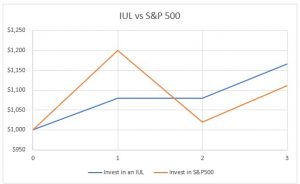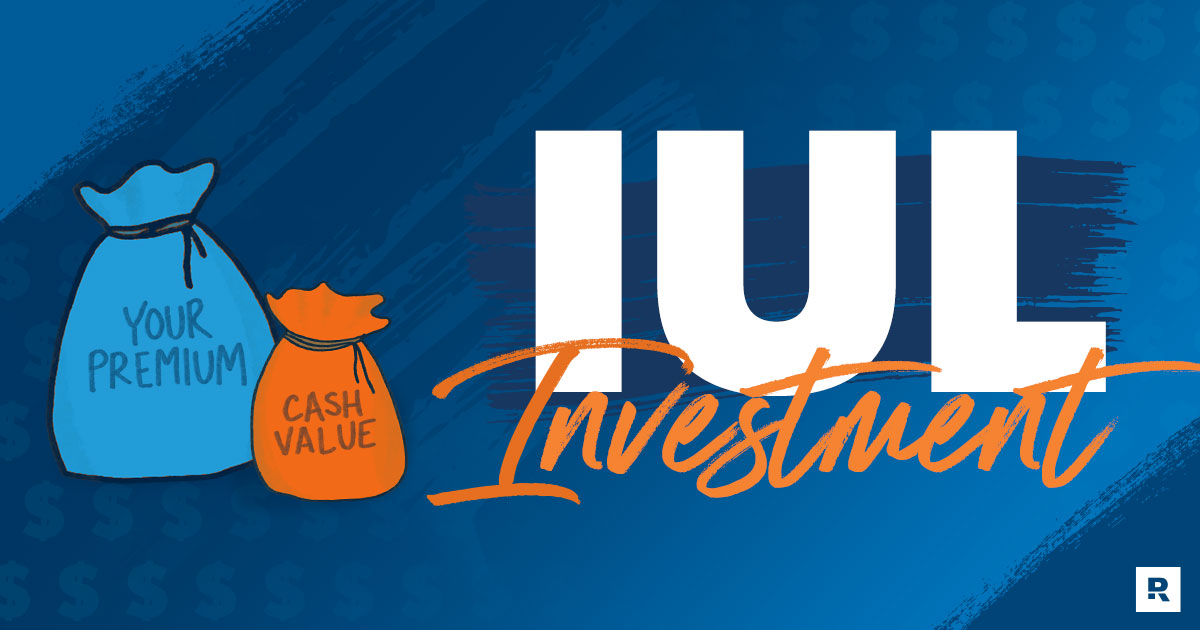All Categories
Featured
Table of Contents
Do they compare the IUL to something like the Lead Total Stock Market Fund Admiral Shares with no lots, a cost proportion (ER) of 5 basis points, a turn over ratio of 4.3%, and an extraordinary tax-efficient document of distributions? No, they contrast it to some dreadful proactively taken care of fund with an 8% lots, a 2% EMERGENCY ROOM, an 80% turnover proportion, and an awful record of short-term resources gain distributions.
Common funds typically make annual taxable circulations to fund proprietors, even when the worth of their fund has actually dropped in worth. Common funds not only need income reporting (and the resulting annual tax) when the mutual fund is going up in value, yet can likewise enforce income tax obligations in a year when the fund has actually dropped in value.
That's not exactly how common funds work. You can tax-manage the fund, gathering losses and gains in order to decrease taxable distributions to the financiers, yet that isn't somehow going to transform the reported return of the fund. Only Bernie Madoff kinds can do that. IULs prevent myriad tax traps. The possession of mutual funds may require the common fund owner to pay estimated tax obligations.

IULs are simple to position to make sure that, at the proprietor's death, the beneficiary is exempt to either earnings or estate tax obligations. The same tax reduction techniques do not function almost too with shared funds. There are many, usually expensive, tax obligation traps connected with the moment acquiring and marketing of mutual fund shares, traps that do not apply to indexed life Insurance coverage.
Possibilities aren't extremely high that you're going to be subject to the AMT because of your common fund circulations if you aren't without them. The remainder of this one is half-truths at best. While it is true that there is no revenue tax obligation due to your beneficiaries when they inherit the profits of your IUL policy, it is additionally true that there is no earnings tax due to your beneficiaries when they acquire a mutual fund in a taxable account from you.
Equity Indexed Universal Life Insurance Contracts
There are better ways to avoid estate tax concerns than acquiring financial investments with reduced returns. Mutual funds may trigger revenue tax of Social Protection advantages.

The development within the IUL is tax-deferred and might be taken as tax obligation cost-free revenue by means of fundings. The plan proprietor (vs. the common fund supervisor) is in control of his/her reportable earnings, thus enabling them to lower and even eliminate the taxes of their Social Protection benefits. This set is wonderful.
Here's another very little issue. It holds true if you buy a shared fund for claim $10 per share simply prior to the distribution day, and it disperses a $0.50 circulation, you are after that mosting likely to owe tax obligations (most likely 7-10 cents per share) despite the truth that you have not yet had any type of gains.
In the end, it's really concerning the after-tax return, not just how much you pay in taxes. You are going to pay more in taxes by utilizing a taxable account than if you purchase life insurance policy. You're also most likely going to have even more money after paying those tax obligations. The record-keeping requirements for owning shared funds are considerably extra complex.
With an IUL, one's documents are maintained by the insurance coverage company, duplicates of annual declarations are sent by mail to the proprietor, and distributions (if any type of) are totaled and reported at year end. This set is likewise kind of silly. Of program you need to maintain your tax records in situation of an audit.
Best Iul Policies
All you have to do is shove the paper right into your tax obligation folder when it reveals up in the mail. Rarely a reason to acquire life insurance policy. It resembles this person has actually never ever purchased a taxed account or something. Shared funds are typically part of a decedent's probated estate.
On top of that, they go through the hold-ups and costs of probate. The proceeds of the IUL policy, on the various other hand, is constantly a non-probate distribution that passes beyond probate directly to one's named recipients, and is therefore not subject to one's posthumous creditors, undesirable public disclosure, or comparable delays and costs.
Medicaid incompetency and life time income. An IUL can offer their proprietors with a stream of earnings for their whole life time, no matter of how long they live.
This is valuable when organizing one's events, and converting properties to revenue before a retirement home arrest. Common funds can not be converted in a similar fashion, and are generally considered countable Medicaid possessions. This is one more stupid one advocating that poor individuals (you know, the ones that need Medicaid, a government program for the poor, to spend for their assisted living facility) should use IUL rather of common funds.
Index Universal Life Vs Whole Life
And life insurance policy looks horrible when contrasted rather versus a pension. Second, individuals that have money to buy IUL above and past their pension are going to have to be horrible at managing money in order to ever certify for Medicaid to spend for their assisted living facility costs.
Persistent and incurable health problem biker. All policies will permit an owner's easy access to cash from their plan, often waiving any type of surrender fines when such people experience a serious illness, need at-home treatment, or become confined to a retirement home. Mutual funds do not give a similar waiver when contingent deferred sales costs still relate to a mutual fund account whose proprietor needs to market some shares to fund the expenses of such a keep.
Indexed Life Policy
You get to pay even more for that benefit (biker) with an insurance plan. Indexed universal life insurance coverage provides death advantages to the recipients of the IUL owners, and neither the proprietor nor the recipient can ever before shed money due to a down market.
I definitely do not need one after I reach financial freedom. Do I want one? On average, a buyer of life insurance policy pays for the true expense of the life insurance coverage benefit, plus the costs of the policy, plus the earnings of the insurance policy firm.
Iul Result
I'm not entirely sure why Mr. Morais threw in the entire "you can't shed money" once again right here as it was covered fairly well in # 1. He just wanted to duplicate the very best marketing point for these points I suppose. Once more, you don't lose small bucks, but you can shed actual bucks, as well as face major possibility price as a result of low returns.

An indexed global life insurance plan owner may exchange their policy for a completely different plan without triggering revenue tax obligations. A mutual fund proprietor can stagnate funds from one common fund company to one more without offering his shares at the former (thus triggering a taxed occasion), and repurchasing brand-new shares at the last, usually based on sales fees at both.
While it holds true that you can trade one insurance coverage plan for an additional, the reason that individuals do this is that the initial one is such a dreadful plan that even after purchasing a new one and experiencing the early, negative return years, you'll still come out in advance. If they were marketed the appropriate plan the very first time, they should not have any wish to ever exchange it and undergo the very early, adverse return years once more.
Latest Posts
Financial Foundation Iul
Universal Vs Term Insurance
Universal Life Cost Of Insurance